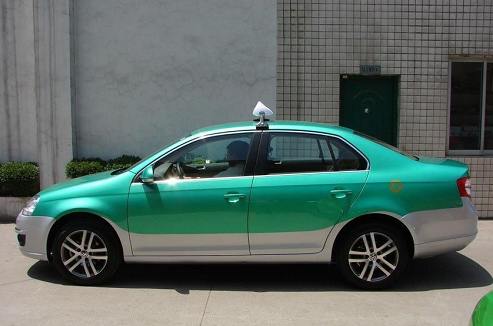 For safety reasons, the Shenzhen Municipal Transportation Commission recently announced that it will “compulsoryly require camera surveillance equipment on taxis.†This mandatory measure has aroused heated debate in the society. The controversy focuses on the contradiction between public safety and personal privacy.
For safety reasons, the Shenzhen Municipal Transportation Commission recently announced that it will “compulsoryly require camera surveillance equipment on taxis.†This mandatory measure has aroused heated debate in the society. The controversy focuses on the contradiction between public safety and personal privacy. Under normal circumstances, passengers and drivers in the process of taxiing disputes or security incidents, as long as the camera monitoring within the taxi can be restored to the truth. In addition to facilitating the resolution of passenger and driver disputes, the installation of camera surveillance also provides drivers with a layer of protection. However, the mandatory installation of camera surveillance in taxis does indeed infringe the privacy of passengers.
It is understood that taxi drivers have been activated in cities such as Chongqing, Wuhan, Nanchang, Huai'an, Urumqi, Nanjing and Hangzhou. The discussion on whether this practice infringes passengers’ privacy has not stopped. The NetEase car channel has launched an online survey. The survey respondents believe that the taxi camera does not infringe on privacy, accounting for 33%, and 66% believe that infringement of personal privacy. In March 2011, Hangzhou’s first 64 taxis with cameras were on the road. Of the 1288 people surveyed in the local area, more than 70% expressed support for taxi installation monitoring cameras, and nearly 30% opposed it. In April 2012, the Qingdao media launched a survey showing that three adults support it, and more than half of the people oppose it. Two-tenths don’t care. From several public opinion surveys, opponents of the installation prevailed.
It should be noted that the protection of privacy rights is often proportional to the degree of civilization of the society. The "World Universal Declaration of Human Rights" and the "International Covenant on Civil and Political Rights" signed by China have made explicit provisions on the right to privacy and protected it as an important part of human rights and citizenship rights.
Admittedly, any kind of rights must be subject to corresponding restrictions. "Absolute privacy rights" do not exist in the rule of law society, and personal privacy rights in public places must also accept certain restrictions. However, although taxis are part of urban public transportation, they are not completely public places like buses, but are still relatively personal spaces. Passengers should enjoy certain privacy rights in taxis. Therefore, unless the public security deteriorates to a certain extent, or if the dispute between the driver and the passenger reaches a certain percentage, it is necessary to be cautious when installing a camera on a taxi. If public opinion is not asked, it is forced to require taxis to force cameras to be installed. It is indeed a lazy administration and irresponsible policy for the relevant government management departments. This type of “broad-brush†strategy that has not been subject to public opinion surveys and scientific arguments is not a good thing.
If you have to install video surveillance in a taxi, you must establish a set of corresponding passenger privacy protection mechanisms, strictly regulate the video viewing rights and procedures, and strictly prevent video leakage inside the vehicle. For the leakage of passenger privacy due to improper management and use, it is necessary to strictly investigate relevant responsibilities.
The author suggests that relevant parties should hold public hearings on whether to install cameras in taxis, listen to opinions from passenger representatives, taxi drivers, representatives of taxi companies, and people from all walks of life. Online polls can also be launched on the basis of opinions solicited. Carefully weigh the pros and cons and make careful decisions. It is learnt that the Shenzhen Jiaotong Passenger Transport Administration officially replied to the media yesterday and said that it would extensively and in-depthly solicit the opinions of all parties and fully discuss and decide after full and systematic public participation. Indeed, ordinary people should have the final say on the people.
Korean Type Heavy Duty Industrial Caster
Korean Type Heavy Duty Industrial Caster
Korean Type Heavy Duty Industrial Caster
Ningbo Mywin Caster Co., Ltd. , https://www.mywin-caster.com